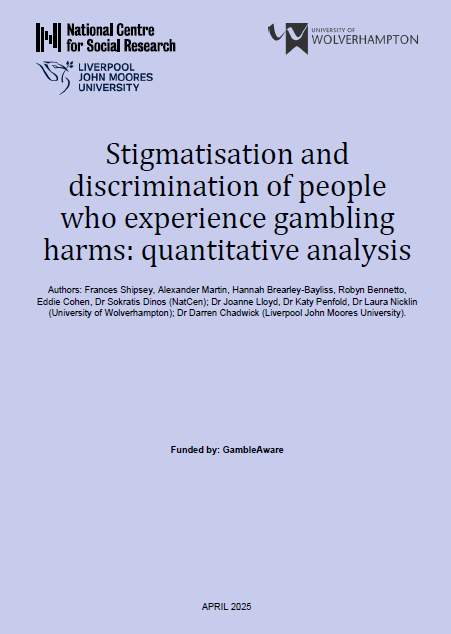Stigmatisation and discrimination of people who experience gambling harms: quantitative analysis
Author: F. Shipsey, A. Martin, H. Brearley-Bayliss, R. Bennetto, E. Cohen, Dr S. Dinos (NatCen); Dr J. Lloyd, Dr K. Penfold, Dr L. Nicklin (University of Wolverhampton); Dr D. Chadwick (Liverpool John Moores University) Published: June 2025Stigmatisation and discrimination of people who experience gambling harms: quantitative analysis
Author: F. Shipsey, A. Martin, H. Brearley-Bayliss, R. Bennetto, E. Cohen, Dr S. Dinos (NatCen); Dr J. Lloyd, Dr K. Penfold, Dr L. Nicklin (University of Wolverhampton); Dr D. Chadwick (Liverpool John Moores University) Published: June 2025
Stigmatisation and discrimination of people who experience gambling harms: quantitative analysis
This report explores how people who experience gambling harms are affected by stigma and discrimination. Drawing on new survey data, the study examines public attitudes, internalised stigma, and how stigma impacts different demographic groups. It also looks at how stigma may shape access to treatment and support services, and its links with health and wellbeing. https://www.gambleaware.org/our-research/publication-library/articles/stigmatisation-and-discrimination-of-people-who-experience-gambling-harms-quantitative-analysis/


